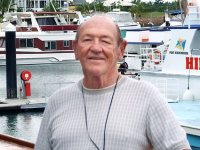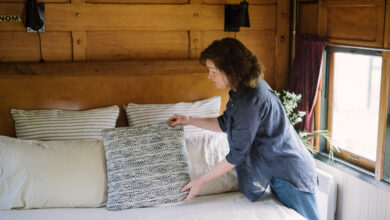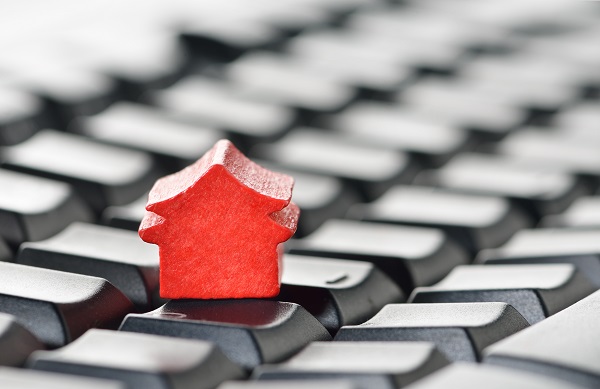Last-century mentality won’t solve “tourism doldrums”, says Airbnb
Airbnb denies its 11,500 listings are to blame for traditional accommodation businesses going to the wall in Western Australia.
The home-share platform is mobilising its hosts to back an email campaign urging state parliament for a “fair” solution to regulating the short-stay industry.
It has employed similar tactics in Queensland, Victoria and New South Wales, with hosts asked to pressure state authorities over proposed regulation.
Head of public policy for Australia, Brent Thomas, said WA businesses needed to embrace the changing face of millennial travel rather than blame Airbnb for a downturn in business.
“People increasingly don’t want to travel how their parents or grandparents did last century and as such, maintaining the status quo or doing the same old things won’t get WA out of its tourism doldrums.”
And he warned: “Our community is a large, growing political constituency and we will be working closely with (the government) to make sure their voices are heard loud and clear.”
[pro_ad_display_adzone id=”27469″ align=”left”] The campaign follows news reports last month of Margaret River accommodation providers seeing significant revenue falls which had already forced local motels out of business.One operator, Debbie Noonan, said Airbnb was having a profound effect on established businesses.
“If things are allowed to continue as they have over the last three years, longstanding quality accommodation properties will continue to disappear in Margaret River, replaced by rented rooms in private houses offered by short-stay accommodation platforms like Airbnb,” she told The Weekend West.
“If that is all the town can offer down the track, it will dilute the quality of the brand we have built for Margaret River, not only locally but, more importantly, internationally.”
Australian Hotels Association WA chief executive Bradley Woods is among those calling for state regulation for the industry, claiming Airbnb has become like a hotel service.
“Planning guidelines should be developed for local government authorities to manage the sector whilst still delivering results for tourism, the economy and job creation,” he said.
“The absence of regulation has created inequity that if not addressed, will continue to put jobs at risk. The AHA accepts genuine shared and hosted accommodation. However, the majority of listings are for entire homes or apartments.”
Mr Thomas said Airbnb was not against regulation, but sought “fair, forward-looking and state-wide” rules for home sharing in WA.
The organisation revealed it welcomed more than 600,000 international and interstate visitors across listed properties in WA last year, while another 488,000 West Australians booked through the website.
The WA government is working on a regulatory plan for the sector.

AccomNews is not affiliated with any government agency, body or political party. We are an independently owned, family-operated magazine.








What inappropriate and derogatory comments from Airbnb’s Brent Thomas.
The 1,088,000 people who stayed in Airbnb’s in WA last year are not additional tourists to or within WA. They are tourists who chose Airbnb instead of legitimate accommodation businesses.
I feel for the Margaret River accommodation sector who have no choice but to comply with Federal, State and Local Government laws.
These quasi holiday homes and apartments need to be regulated just like the rest of us. See how their accommodation tariffs rise once they have all the additional overheads we endure just to exist.
Governments of all levels need to address this disruptive industry epidemic. Just look at today’s news about Taxi drivers and the demise of their businesses due to another sharing economy.
Totally agree with Kerryn Beck’s input. And if those stats are a true reflection of Airbnb’s penetration into the WA market place then I would be pessimistic for any future tourism investments such as hotel infrastructures into WA. If the number of bookings suggests that over 1 million used the unregulated service then that would translate into a minimum of 2 million to 3 million room nights which is of concern for compliant and regulated operators doing the right thing, and who by the way are instrumental in creating economic benefits for the state, paying applicable taxes and employing many. Airbnb operators do not and create at times disruptions in suburban localities, high rise complexes and may still contribute to the black economy unless this has been on the ATO’s target list and fixed.
The sharing economy driven by unregulated technology has been allowed to evolve unchecked and uncontrolled, why, government ignorance. Now they play catch up and the good and law abiding hospitality economy is left to deal with the impact that in some instances means bankruptcy, reduction in personnel, and tighter financial controls to survive. This issue has been on the boil for more than 8 years and still no real clarity and decisive action from the regulators and Government at all levels…… NHI
It’s an interesting claim that Brent Thomas Head of public policy for Australia suggests that the millennial traveller doesn’t want to travel like their parents or grandparents.
I believe that the very model of Airbnb dates back to pre-luxury travel, where homes offered spare rooms with shared bathrooms, or people renting out their outbuildings to travellers for the night. I think the travelling public demanded better for a reason.
If the travelling public’s perception of new is living in tents in the backyard, sleeping in the trees in purpose-built cubbyhouses and sharing their bathrooms, and living quarters with strangers, then maybe they need to look at some of those old fashioned things called ‘Photo albums’ to see how their grandparents travelled in the old days. What’s that saying ‘everything old becomes new again’.
Brent Thomas and Airbnb aren’t trying to sell anything new, they are selling an old idea in which the only company benefiting is Airbnb. There is no such thing as a ‘shared economy’, these are just two words they banter around to government and the general public, to hide the fact that they avoid paying any taxes in the country they operate in, and all income goes off shore. Did they also forget to mention that they slug the travelling public 13%?
This company is a juggernaut of media smoke and mirrors, who have neighbours pitted against neighbours in the belief that they have a right to play hotelier. Yet in the end, the only people who will be left disrupted are the community, towns, cities and countries that allowed this company to dictate laws they operate under.
Why would any government allow this company to even sit at the table dictating the idea of ‘fair’, when they openly snub their corporate noses at local laws and only come out fighting when their gravy train is threatened? You only need to look at the Margaret River region and Airbnb’s own stats to see less than 100 properties are what they sell as ‘shared economy’ or ‘living like the locals’.
The remaining 700 properties are Perth or internationally owned ‘holiday homes’, neither a ‘shared economy’ nor ‘living like the locals’ as advertised. Without a local onsite to welcome or share any local knowledge, and with pockets of the community which have been bought out for the sole purpose of making money, you can understand why communities are screaming ‘foul’ when the local economy is ruined by a bad corporate citizen promoting tax avoidance.